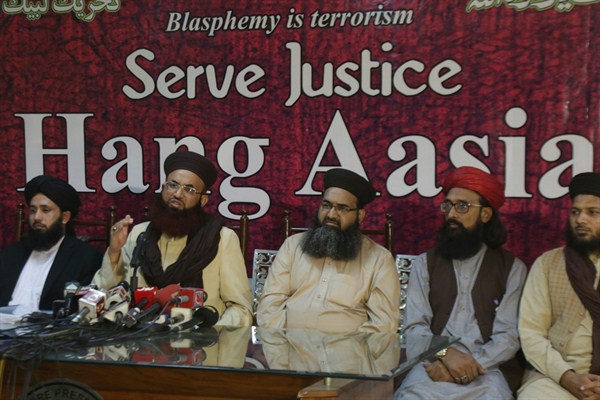Violent protests swept across Pakistan earlier this month in response to the Supreme Court’s acquittal of Aasia Bibi, a Christian woman who spent eight years on death row for blasphemy. The multi-day protests, organized by the hard-line Islamist political party Tehreek-e-Labbaik Pakistan, or TLP, subsided only after the government agreed to prevent Bibi from leaving the country. In an interview with WPR, Michael Kugelman, deputy director of the Asia Program and senior associate for South Asia at the Woodrow Wilson International Center for Scholars in Washington, D.C., discusses Pakistan’s controversial blasphemy laws and the impact of the Bibi case on the country’s judiciary.
World Politics Review: How far-reaching are Pakistan’s blasphemy laws, and what impacts have they had on religious minorities there?
Michael Kugelman: It’s hard to overstate the impact these laws have had on Pakistani society, particularly on religious minorities. These laws are meant to prevent people from insulting Islam and the Prophet Muhammad. However, they are often exploited by religious hard-liners as a pretext to scapegoat religious minorities. Christians and Ahmadis, two heavily persecuted minorities in Pakistan, are frequently and falsely accused of committing blasphemy. This can even result from simple disagreements, as in the case of Aasia Bibi, who was accused of blasphemy after getting in a dispute with several Muslim women over drinking water. Sometimes even Muslims are targeted. Last year, a Muslim student named Mashal Khan was accused of blasphemy after criticizing his university about non-religious matters. He was subsequently lynched. This type of mob violence fueled by blasphemy allegations has killed more than six dozen people in Pakistan since 1990, according to figures compiled by Al Jazeera.

